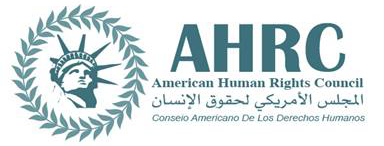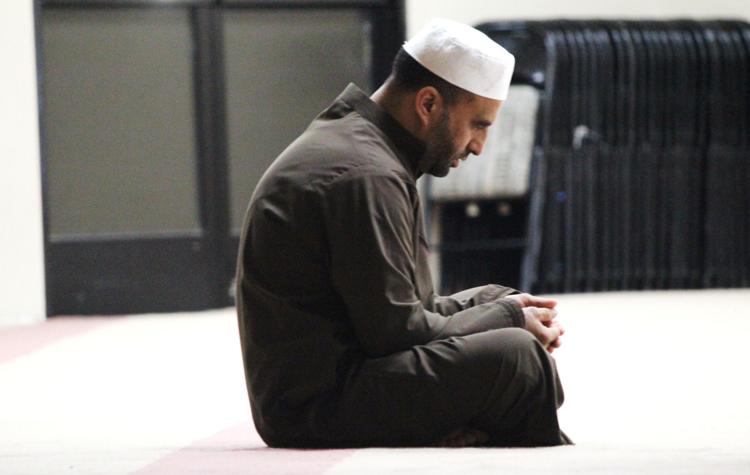Patience and prayers: Muslims approach Ramadan in a time of quarantine
By Sue Suchyta For MediaNews Group Apr 20, 2020
Ramadan, a time of heightened spiritual reflection, devotion and worship, which begins the evening of April 23 and ends the evening of May 23, will be markedly different this year.
With the COVID-19 pandemic necessitating the need to institute social distancing, self-quarantine and the elimination of group gatherings to save lives, prayers during the holy month of Ramadan will take place not in mosques, but at home, much the way Jews adjusted to closed synagogues during Passover, and Christians adapted to empty churches on Easter Sunday.
Imam Mohammad Ali Elahi, of the Islamic House of Wisdom in Dearborn Heights, said that while congregations will not gather at mosques, services will be broadcast online. Normally, when people would gather for evening prayers, they would be standing shoulder to shoulder while following the ritual, as well as shaking hands and hugging.
“This kind of tradition is showing the love and mercy of the month of Ramadan in a passionate way, inside the mosque,” he said. “Obviously, we cannot have a typical presence, and we cannot have that ritual.”
Imam Mohammad Ali Elahi, Islamic House of Wisdom, Dearborn Heights.
Sue Suchyta — For MediaNews Group Elahi said the community meal, the breaking of the fast together, will also not take place this year.
“If this ban continues until then, we are going to miss that part,” he said. “Anything that has to do with the physical participation and togetherness, that’s not going to happen at Ramadan, but the spiritual part, the educational part, the prayer part, and the connection at the level of Zoom and Facebook, they continue.”
Elahi said congregations and the community will follow state and medical guidelines issued to limit the spread of COVID-19.
“We believe in respecting the laws and regulations, especially during the month of Ramadan, which is a month of peace,” he said.
Elahi said Ramadan is a time of fasting and prayer, and a time to provide for the less fortunate. He said his congregation at the Islamic House of Wisdom, 22575 Ann Arbor Trail, in Dearborn Heights, will continue its drive-through food distribution for those in need during Ramadan, at 11 a.m., with food brought to the recipient’s car. Call 313-359-1221 for more information.
“Ramadan is about fixing our relationship with God, and with ourselves, our family, our neighbors, our community, and to return to God, show more understanding, build bridges and promote reconciliation,” he said. “It’s a month of mercy and forgiveness. We ask God to forgive us, then we have to forgive one another and promote peace, patience, piety and prayer.”
Imad Hamad, executive director of the American Human Rights Council, said fasting, prayers and time spent with one’s immediate household, with the elaborate meal preparation of Ramadan, will continue despite the quarantine.
“Faith will not surrender to any circumstances,” he said. “People’s reflections get stronger during difficult times.”
Hamad said Ramadan customs will adjust to the current reality of social distancing.
“Ramadan is a month of fasting, sharing, caring, reflections and giving,” he said. “This will not change, regardless of circumstances. It is a time to be closer to God.”
Hamad said saving lives is an Islamic mandate, so group gatherings at mosques, Iftar dinners and other multi-generational gatherings will not occur, to avoid putting people at risk.
“With the serious concern over COVID-19, it has become more important not to take a risk,” he said. “The person’s health and well-being come first. The family gatherings will be sorely missed. The daily Iftar dinner was a precious family time.”
Hamad said technology can help connect family and friends, even if the initial learning curve is challenging.
“Regardless, the spirit of Ramadan and its blessings will continue and will shine brighter than ever,” he said. “It’s a bright light amidst the coronavirus darkness.”
Hamad said one advantage to this year’s Ramadan will be that it will be easier for school children and non-essential workers to stay up late and sleep later the next day.
He said that while some Muslim scholars are recommending that people stay hydrated during COVID-19, the majority of the scholars feel that healthy Muslims may still observe the traditional fast.
“Muslims believe in the power of prayers,” Hamad said. “We ask the community to be patient during such trying times, and to continue to pray to God to lift this disease, heal those who are affected by the virus and be merciful to those who die from it.”
Zinab Zriek of Dearborn, a teacher at Dearborn’s Fordson High School, said that while Ramadan will be different in many ways this year for Muslims around the world, its true essence will remain.
“Muslims have to change their mindset from thinking about themselves, to thinking about others,” she said. “This means social distancing – the health and well-being of others is now on the line.”
Zriek said some of her fondest memories when growing up were of breaking fast during Ramadan with family members she didn’t see on a regular basis.
“This Ramadan, I will take the opportunity to connect with immediate family, and to check-up on distant relatives and friends with a simple text message, a call or even FaceTime, to connect spiritually,” she said.
Zriek said she is grateful to be able to work from home during the pandemic, and to have students, family and friends to connect with virtually, as well as a cozy home and a full refrigerator.
“This made me think of the individuals around the world that are not as lucky, and the refugees in war-stricken countries,” she said. “So, this Ramadan, being a little more thankful, connecting with God and my family, and giving more is something I will focus on.”
Dearborn attorney Majed Moughni said he will also miss Ramadan family gathering, but realizes that community safety and health comes first.
“If we can help protect life, that is more important than the gatherings,” he said. “This Ramadan will be like no other we have seen, like no other our generation has experienced, with no restaurant buffets to break the fast, and no Eid prayers or celebrations.”
Moughni said mosque services posted online, and live via Zoom, will let people experience the services.
“What will be easier, for many students, is they can sleep in, and stay up late,” he said. “In a way, that is a blessing of this quarantine, if there is such a thing.”
Mona Makki, director of the Arab Community Center for Economic and Social Services’ Community Health and Research Center, said ACCESS is developing talking points for faith leaders and others to encourage people to be safe by staying home and practicing social distancing during Ramadan.
The holy month of Ramadan is a time of deep spiritual discipline,” she said. “It is also a time of self-reflection, charity, prayer and generosity. I think the timing of Ramadan will help individuals better cope with the stressors of a global pandemic and to remain hopeful and positive.”
Sue Suchyta — For MediaNews Group
Press & Guide Article- Ramadan 2020:
https://www.pressandguide.com/news/patience-and-prayers-muslims-approach-ramadan-in-a-time-of-quarantine/article_c43f58a6-831a-11ea-a27e-4f786f2f0dd3.html

